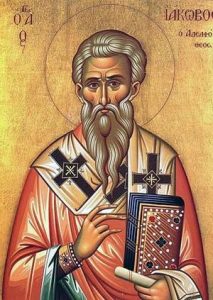21:20 Feb 16, Edited to add a quote from Mack in a book, edited by Neusner and others . . .
The following is presented by Dr James McGrath on his Did Jesus Exist Youtube video as fundamental evidence for the historical existence of Jesus. It is a standard line, almost a “historicists’ creed”, and it is factually false and and logically fallacious.
The reason that the crucifixion persuades most historians that Jesus was a historical figure is that a crucified messiah was in essence a contradiction in terms. . . . It needs to be emphasized that we are talking about a dying and rising messiah. And the messianic expectations of Judaism around the time of early Christianity are well documented. And the whole notion of messiah is “anointed one” . . . . and this goes back to the practice of anointing kings and priests in ancient Israel. And in the case of Jesus the connection of the terminology of the term messiah with the claim to his having been descended from David shows they were thinking of a kingly figure. And nothing would have disqualified someone from seriously being considered possibly being the messiah as being executed by the foreign rulers over the Jewish people. That wasn’t what people expected from the messiah. And it makes very little sense to claim that the early Christians invented a figure completely from scratch and called him the messiah and said that he didn’t do the same things that the messiah was expected. Not only did he not conquer the Romans, he was executed by them. He did not institute and bring in the kingdom of god the way the people were expecting, and in fact Christians had to explain this in terms of Jesus returning to finish the task of what was expected of the messiah.
All of this makes much more sense if one says that there was a figure whom the early Christians believed was the messiah and that the early Christians were trying somehow to make sense of those things that don’t seem to fit that belief.
To dismantle this:
The reason that the crucifixion persuades most historians that Jesus was a historical figure is that a crucified messiah was in essence a contradiction in terms. . . . It needs to be emphasized that we are talking about a dying and rising messiah. And the messianic expectations of Judaism around the time of early Christianity are well documented.
Well documented?
McGrath needs this to be true, since this central argument for historicity of Jesus depends on the Jews generally and deeply holding in a belief of an expectant messiah who was to rule as a new David. So what is the documentation that is apparently so abundant that it can be casually alluded to with a passing comment?
I have addressed the so-called “evidence” — and its complete absence — for such a belief at the time of Jesus in recent posts here and here. (Matthew’s gospel birth narrative is even structured on the assumption that there was no such general belief at that time.)
So it’s time for something a bit different. This time, from William Scott Green in the opening chapter of Judaisms and Their Messiahs at the Turn of the Christian Era, edited by Neusner, Green and Frerichs (1987).
The term “messiah” has scant and inconsistent use in early Jewish texts. . . .
The disparate uses . . . offer little evidence of sustained thought or evolving Judaic reflection about the messiah. . . . . the term is notable primarily for its indeterminacy.
In view of these facts, one may legitimately wonder about the reasons for conceiving “the messiah” as a fundamental and generative component of both Israelite religion and early Judaism. One may wonder about the justification for the assertion that “from the first century B.C.E., the Messiah was the central figure in the Jewish myth of the future,” . . . . or for the widespread assumption that “In the time of Jesus the Jews were awaiting a Messiah.” One may wonder, in other words, how so much has come to be written about an allegedly Jewish conception in with so many ancient Jewish texts manifest such little interest. (pp. 2-4)
And there is another comment on this so-called “well documented” evidence for the expectation of a Davidic messiah at the time of Jesus. This one from chapter two in the same book, authored by Burton L. Mack:
Jacob Neusner has challenged a long tradition of scholarship by the addition of a single letter to the magical word messiah. Messiahs it now is. And the singular notion of “the” messiah is disclosed for what it always has been — a scholarly assumption generated by the desire to clarify Christian origins. (p. 15)
Should we not expect doctors who make definitive statements for the general public, and in an area of their speciality, to speak with an authority based on evidence and knowledge? Why are the public told in this video that a certain idea important for making the historicist case is “well documented”? Can any academic specialist in the area detail the evidence that Neusner, Mack and Green (and Fitzmyer from an earlier discussion here) have all missed?
Back to McGrath’s historicist case:
And nothing would have disqualified someone from seriously being considered possibly being the messiah as being executed by the foreign rulers over the Jewish people. That wasn’t what people expected from the messiah. And it makes very little sense to claim that the early Christians invented a figure completely from scratch and called him the messiah and said that he didn’t do the same things that the messiah was expected
Just one detail missing here. Only one. (Recently at work we had to laugh when we were trying to rationalize performance statistics, and in the process discovered a typo — someone had accidentally omitted a “1” that should have been included at the beginning of a 5 digit number. 19,500 should have been 119,500. I joke that we were only out by “1” — a mere detail.)
But James has effectively removed this one from the discussion by his preliminary remarks about the resurrection. The resurrection, being a supernatural event, is said to be off-limits from naturalistic historical enquiry. But historians can talk about the crucifixion.
This is how the presumption of historicism is made to prove itself. But the fact is that the early Christians spoke of the death and resurrection of Jesus; it was a two-sided singular event with the resurrection making sense of – being the very reason for – the crucifixion.
The historicist attempt to take this belief apart to understand it does not throw light on this belief. It’s like Douglas Adam‘s attempt to understand how a cat works by taking it apart — the first thing he has is a nonworking cat.
The obvious flaw in this argument (that no-one would have made up from scratch the idea of a messiah who had been crucified) is that the belief was NOT that a messiah had been crucified, but that a messiah had overcome crucifixion by the resurrection. The messiah did not do what the so-called Jewish messiah was supposedly expected to do, true. The Christian messiah did even greater things than the Jewish “Davidic” messiah! Jesus was greater than Moses, Elijah, Solomon and David. The Christian messiah conquered the spiritual kingdoms that ruled this world. This was a principle message of the first gospel, Mark. It’s hardly a negative concept. The idea of a greater spiritual realm and activity that surpassed and paled the hopes of the mere physical was nothing novel.
Scholars have written of the socio-psychological dynamics that may underlie the story of the possession of man by “Legion” (a demonic Roman army) and how Jesus cast Legion out and into suicidal pigs, an emblem of the 10th Legion occupying Palestine.
We know the attraction that paradoxes had among ancient philosophers and religious ideas. We also know the theme of paradoxical reversal was deeply embedded in the thought of the texts of the Hebrew scriptures. Mark’s gospel itself is riddled with such riddles and paradoxes. The blind see. The called flee. Food in abundance comes from a lack of food in a wilderness. Those who know Jesus best are the ones who fail to recognize him. Forsaking the world is the way to inherit the world. Death is the way to life. It was the same throughout Jewish religious narratives. The prisoners doomed to die are the one exalted to rule the kingdoms. The suffering servant Israel is destined to be the light to all nations. The cast out are the most beloved. The destruction of the physical temple is the way to the advent of the spiritual temple.
And the way to rulership and conquest is through death and suffering. It is an inevitable paradox that gave comfort to Jewish martyrs ever since the time of the Maccabean wars. The way to life was through death. God would exalt those whom the world abased. Have discussed this in some detail here.
The idea of a divinity with whom one could identify in the face of cruel losses and lacks in this world, and who had overcome death and suffering, and all the evil of this world, must have been one of the easiest sells. The idea that it must have been “hard” to sell is derived, I think, from the apologetic paradigm that attempts to “prove” the truth of its gospel message.
Such paradoxical reversals were a comfort to people without hope in this life. They were far from being stumbling blocks. They were gateways to hope. They were always the hope of martyrs from pre-Christian times.
There is no evidence at all that the earliest Christians were struggling to make sense of the death of Jesus. The death of Jesus first appears in the evidence as a fully formed and sensible part of the message of the resurrection overcoming death.
Historicist arguments fail to deal with this evidence. By taking it apart, pulling it apart to the extend that it is no longer the recognizable belief or evidence calling for explanation, the historicist argument is trying to make sense of a non-working cat.
The mythicist argument has the advantage of advancing the more probable or likely scenario that explains the evidence as it is, that deals with the earliest Christian belief for which we have evidence, and without destroying this evidence to make sense of it.
I titled this post, “dismantling the evidence of James McGrath”. It is McGrath who has dismantled the evidence we have of earliest Christian belief to deal with something quite unlike any early Christian belief for which we have evidence.
(to be continued . . . . )
James McGrath has also asserted that the earliest Christian belief was that Jesus was a man and not a divinity. I have yet to see evidence for this, too.
Like this:
Like Loading...








